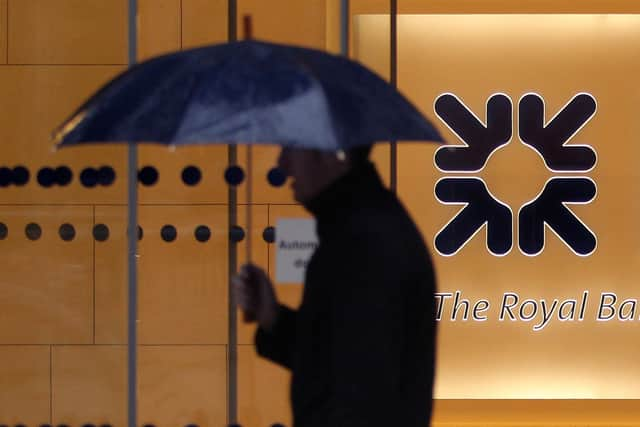Scotland faces 'extremely difficult period' as private sector again contracts
The lender has revealed its latest purchasing managers’ index (PMI) data, with the headline business activity index adjusted for seasonality again posting below the neutral 50 threshold at 45.8, seen as indicating a sharp decrease overall, and down from 48 in September.
Judith Cruickshank, chair of the Scotland board at RBS, commented on the latest report’s findings, stating: "The downturn in activity quickened on the month, as stubbornly high inflationary pressures, the ongoing cost-of-living crisis, and a threat of recession deterred growth. New orders received at firms also fell further."
Advertisement
Hide AdAdvertisement
Hide AdNew business received indeed fell sharply last month, outpacing the UK-wide average, with this index coming in at 44.1. The rate of decrease was the fastest in the current fourth-month sequence of reduction, and companies noted that looming recession, economic uncertainty, and the cost-of-living crisis stymied client activity.


Output expectations for the year ahead across private sector firms in Scotland strengthened in the three months to October, with the jump described as underpinned on planned expansions and investment, with firms also hopeful of future economic stability. The future activity index amounted to 56.8 last month.
Turning to employment, the relevant index measured 50.6, although rate of job-creation remained softer than that seen at the UK level, while the survey showed a sustained fall in levels of outstanding business, with the relevant seasonally adjusted index of 45.3 posting below 50 for the fifth consecutive month, although it allowed firms to work through backlogs.
Ms Cruickshank also said: "Employment trends across the sector indicated a slowdown in hiring activity over the recent months. The latest upturn was the joint-softest in the current 19-month sequence of expansion. At the same time, the level of outstanding business also fell at a much sharper rate. The data thus suggesting the further weakness in the labour market will not be surprising.”
In terms of input prices, October data saw a “robust” rise, attributed to higher wages and utilities, the cost-of-living crisis, and general inflation adding strain on costs, and extending the run of inflation to 29 months. This index reached 74.3 in the month, ahead of the prices charged equivalent that scored 61.9.
Looking ahead, Ms Cruickshank said: "As we proceed into the final quarter of the year, market conditions are set to become more challenging. The aggressive interest rate hikes, the decline in the value of sterling against the dollar, and the rebound in post-Covid demand phasing out, all amidst the ongoing cost-of-living and energy crises, all point to an extremely difficult period for Scotland."
The bank’s PMI survey is compiled by S&P Global from responses to questionnaires sent to a panel of around 500 manufacturers and service-providers. It follows RBS’ latest jobs report published last week showing that hiring activity across Scotland slumped last month amid growing economic uncertainty.
Comments
Want to join the conversation? Please or to comment on this article.